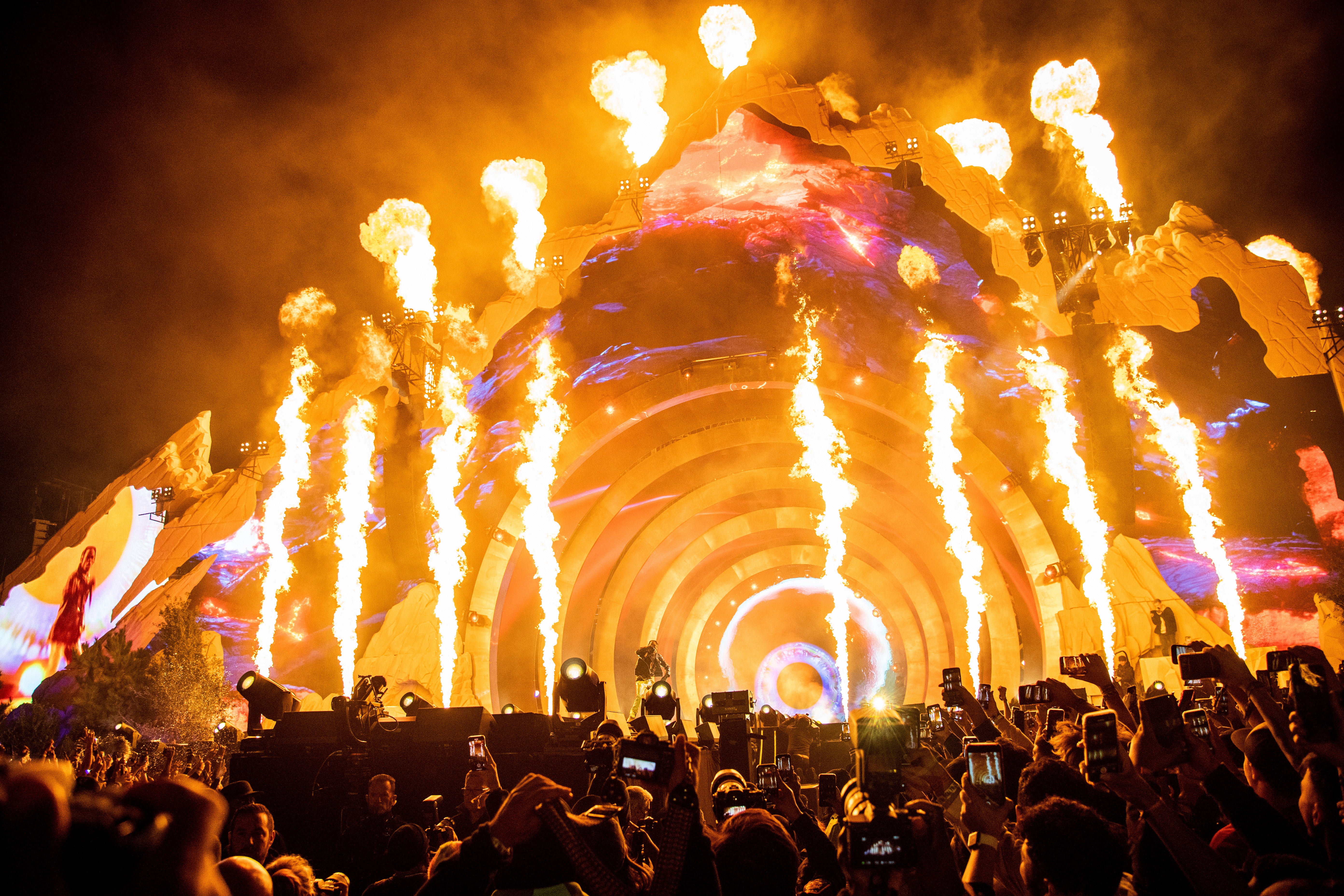We need more than sympathetic performers to avoid another tragedy like Astroworld
Stars are being commended for stopping concerts to help fans but the responsibility for crowd control can’t begin and end with the artists onstage, argues Kevin E G Perry


Your support helps us to tell the story
From reproductive rights to climate change to Big Tech, The Independent is on the ground when the story is developing. Whether it's investigating the financials of Elon Musk's pro-Trump PAC or producing our latest documentary, 'The A Word', which shines a light on the American women fighting for reproductive rights, we know how important it is to parse out the facts from the messaging.
At such a critical moment in US history, we need reporters on the ground. Your donation allows us to keep sending journalists to speak to both sides of the story.
The Independent is trusted by Americans across the entire political spectrum. And unlike many other quality news outlets, we choose not to lock Americans out of our reporting and analysis with paywalls. We believe quality journalism should be available to everyone, paid for by those who can afford it.
Your support makes all the difference.Anyone who’s ever felt the uncontrollable crush of a mosh pit will have been sickened by the news this weekend from Travis Scott’s Astroworld Festival in Houston. Eight people have died and many more were injured after the 50,000-strong crowd surged toward the stage during Scott’s performance on Friday night, leaving fans at the front with nowhere to go. The dead range in age from 14 to 27, and firsthand reports from the scene have been horrifying. “Within the first 30 seconds of the first song, people began to drown – in other people,” wrote Instagram user seannafaith. “There were so many people. Tall men, women. Women and men where the only thing they could see was the back of the person in front of them. The rush of people became tighter and tighter. Breathing became something only a few were capable of. The rest were crushed or unable to breathe in the thick, hot air.”
In the wake of the tragedy, numerous video clips of other performers such as Dave Grohl and Linkin Park stopping shows out of consideration for their audience have circulated online. Among those receiving praise have been Adele, who paused a rendition of “Rolling In The Deep” to point medics in the direction of a fan who had fainted, and Billie Eilish, who in September called out security at the Governors Ball festival in New York City for not doing their jobs. “Security, why aren’t you paying attention? Like, for real,” asked Eilish as she gestured towards an area of unrest in the crowd, before adding: “One job, please.”
While all these artists certainly deserve to be commended for looking out for their fans when they spotted dangerous incidents unfolding, the responsibility for crowd control, including the decision to stop a show completely and bring the house lights up, is far too important to be entrusted to performers midway through playing their own concerts. As these examples show, artists can have an important role to play in calming a crowd when overcrowding becomes apparent, but there also needs to be systems in place beyond them. Security staff need to have the power to halt a show if needs be, which does not appear to have been the case at Astroworld. Avoiding future tragedies will also require having staff on the ground who are trained in crowd management, as well as better designed festival venues that enable crowds to exit from the front.
In Britain, the horror of people being killed by crowd pressure is most strongly associated with the Hillsborough disaster of 1989, when 97 deaths were caused by the crush that followed police officers allowing far too many football fans to enter pens around the stadium. However, there is also a long history of crowd fatalities at music events. In 1974, a 14-year-old fan was killed and 700 fans were injured in a crush at a David Cassidy show at London’s White City Stadium. In 1979, 11 people were killed in a crush of people trying to get in to see The Who at Cincinnati’s Riverfront Coliseum.
Among the on-site investigators that night in Cincinnati was Paul Wertheimer, who was so moved by the tragic scene that he has since dedicated his life to advocating for better crowd safety at concerts through his company Crowd Management Strategies. He believes the deaths at Astroworld could have been avoided with better planning by the concert organisers. “This was preventable. The crowd was allowed to get too dense and was not managed properly,” Wertheimer told the LA Times. “The fans were the victims of an environment in which they could not control.”
Of particular concern in the Astroworld case is the fact that earlier in the day a crowd of people rushed a VIP entrance, leaving at least one person injured. Reports from local news station ABC13 Houston said that “hundreds” of fans ran past security around 2pm and entered NRG Park where the event was held. While some were reportedly later detained by security, those who did manage to enter the event without a ticket would have obviously exacerbated the overcrowding inside.
In the days since the tragedy occurred, multiple lawsuits have already been brought against Travis Scott as well as organisers ScoreMore and Live Nation, while criminal investigations are also underway. The hope is that by thoroughly investigating this incident future tragedies can be avoided, but that will require a full and open accounting of what went wrong in Houston. Historically, incidents like this have often been settled out of court, which means important lessons can be missed.
G Keith Still, a visiting professor of crowd science at the University of Suffolk, told The Telegraph that the live events industry should look to other safety-conscious fields for best practices. “Look at the aviation industry. If there’s a near miss or a close collision there is an investigation by experts. And there are new processes and procedures put in places,” he said. “When an incident happens where there’s been a personal injury at an event, it gets settled out of court, the documents get sealed… The industry doesn’t have this feedback mechanism… Near misses, close calls are known about – they’re not talked about.”
It’s way past time that changed. Concert goers who have paid good money to attend a festival or a large-scale outdoor show are well within their rights to assume that the event’s organisers have put systems in place to protect them. It can’t just be up to performers having the wherewithal to decide to stop the show on their own. At Astroworld, whatever systems were in place evidently failed horrifically. We can’t let that happen again.



Join our commenting forum
Join thought-provoking conversations, follow other Independent readers and see their replies
Comments